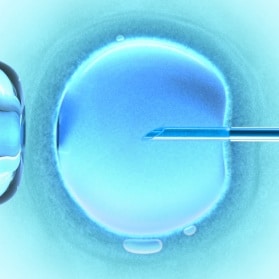A word of caution. A Catholic may vote either way but there are morally wrong ways one can vote "no" to the Proposition. There may be morally evil reasons to vote "yes", but I am not certain what they are.
The morally evil reasons one may vote against the proposition, could be: votes against the proposition to ensure the practice of abortion on demand, or to promote the use of birth control means that destroys fertilized eggs, or to promote the cloning of human beings, or to promote in vitro fertilization.
Some people may find the last one puzzling. Shouldn't we encourage human life? Shouldn't the Church be supportive of couples who want babies? Shouldn't the Church think having lots of children is a good thing no matter how they get here? Those are the types of concerns I hear when I tell people in vitro fertilization is not in keeping with the teaching of the Catholic Church.
 |
| The initiative |
Concerning in vitro fertlization and the gift of children, 3 citations of the Catechism:
 |
| In vitro fertilization is morally unacceptable for Catholics |
2377 Techniques involving only the married couple (homologous artificial insemination and fertilization) are perhaps less reprehensible, yet remain morally unacceptable. They dissociate the sexual act from the procreative act. The act which brings the child into existence is no longer an act by which two persons give themselves to one another, but one that "entrusts the life and identity of the embryo into the power of doctors and biologists and establishes the domination of technology over the origin and destiny of the human person. Such a relationship of domination is in itself contrary to the dignity and equality that must be common to parents and children." "Under the moral aspect procreation is deprived of its proper perfection when it is not willed as the fruit of the conjugal act, that is to say, of the specific act of the spouses' union . . . . Only respect for the link between the meanings of the conjugal act and respect for the unity of the human being make possible procreation in conformity with the dignity of the person."
2378 A child is not something owed to one, but is a gift. The "supreme gift of marriage" is a human person. A child may not be considered a piece of property, an idea to which an alleged "right to a child" would lead. In this area, only the child possesses genuine rights: the right "to be the fruit of the specific act of the conjugal love of his parents," and "the right to be respected as a person from the moment of his conception."

